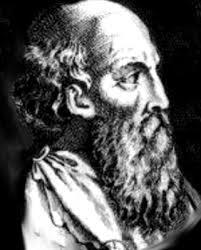
EPIKTETOS is a Greek Stoic philosopher, who begins his life as a slave in Hierapolis (Turkey). He lives in Rome until his banishment. Afterwards, he goes to Nicopolis, in Greece, for the rest of his life. He acquires notoriety as a philosopher. Among his pupils, stands the Greek historian, public servant, military commander and philosopher, Arrian. This is the one who writes down the notes which we now can study and enjoy.
Epiktetos is very keen on asserting that philosophy is a way of life, not a theoretical discipline. He thinks that all external events are beyond our control . Thus, we should accept them, without resisting. On the other hand, everybody is responsible for his own actions. And these actions are examinable and controllable thanks to a strict self-discipline. “Discourses” and “Enchiridion” differentiate between what is in our power (<prohairetic> things) and what it is not (<aprohairetic> things).
According to Epiktetos, the ground of all philosophy is self-knowledge. Ignorance and fallacy must be the initial subjects of our attention and study. In order for us to carry out this task, logic is a big aid. In fact logic is the most valid way of reasoning and of reaching certainty in judgment.
The most demanding part of philosophy is the factual application of all its prescriptions. For example, the initial instruction says that people should not indulge in superficial pleasures. The second concerns the very reasons for such a recommendation, i.e. why people should not indulge in pleasures. The third is the examination of the reasons. This is the logical part, which firstly provides the reasons, secondly shows what is a reason, and thirdly proves that a given reason is correct. The entire third part is indispensable, but only because of the second, which again is necessary because of the first.